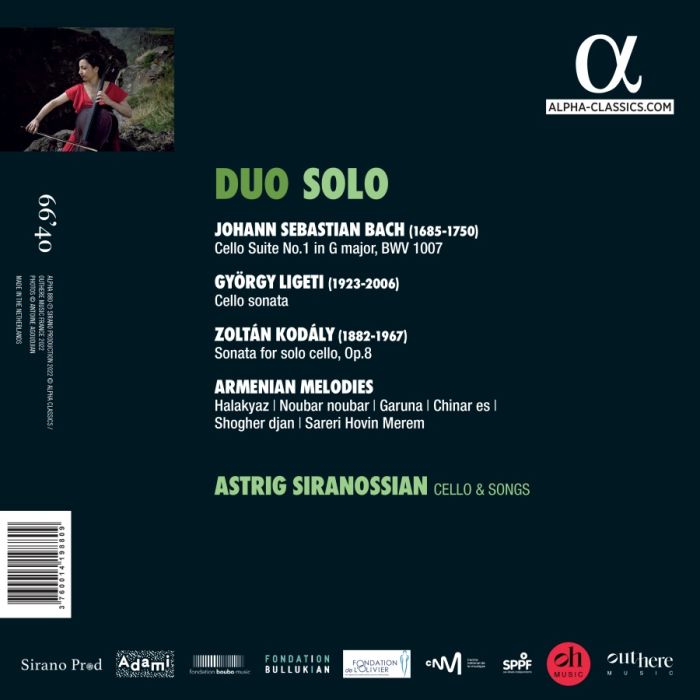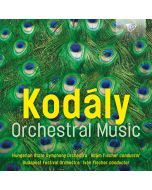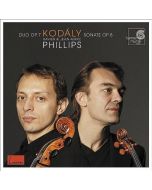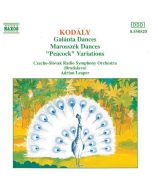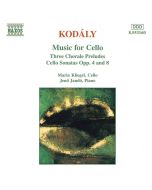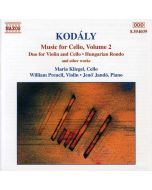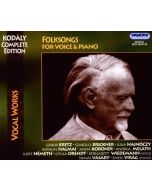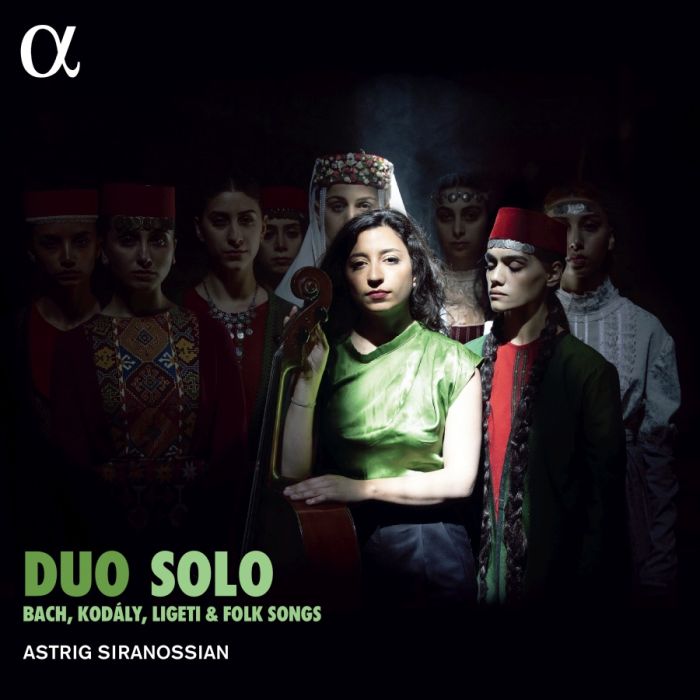
(Produkt nie został jeszcze oceniony)
kompozytor
różni kompozytorzy
tytuł
Duo Solo
pełny spis kompozytorów
Bach, Johann Sebastian, Kodaly, Zoltan, Ligeti, György, różni kompozytorzy
wykonawcy
Siranossian, Astrig
nr katalogowy
Alpha 880
opis
This album is the story of a dialogue between two voices: the singing voice and the voice of the cello, which has always been considered the instrument closest to the human voice. It is also the story of two worlds and the meeting of two cultures, East and West. The East we encounter here is Armenia, its thousand-year-old culture, its music and its songs, which resonate with the compositions of Bach, Kodály and Ligeti. For the cellist Astrig Siranossian, vocal melody and the sound of the cello are two voices that she has always combined in her concerts, coupling a dance from a solo cello suite by Bach with an Armenian song that she performs with great sensitivity. East and West, Armenia and Europe: it is her roots and her emotions that the young cellist shares with us here. This recording was made on two different cellos, according to the repertory: an instrument by Francesco Ruggieri dating from 1676 and the famous Giovanni Gagliano of 1756 known as the ‘Sir John Barbirolli’.
•Schubert: Abendstern, D806
•Schubert: Abschied D475 (Mayrhofer)
•Schubert: An die Musik D547
•Schubert: Das Zugenglocklein D871 (Seidl)
•Schubert: Der Wanderer an den Mond D870 (Seidl)
•Schubert: Der Winterabend (Es ist so still), D938
•Schubert: Die Forelle, D550
•Schubert: Die Sommernacht, D289 (Klopstock)
•Schubert: Die Sterne, D939 (Leitner)
•Schubert: Die Taubenpost, D965A (D957 No. 14)
•Schubert: Erlafsee D586 (Mayrhofer)
•Schubert: Fischerweise, D881 (Schlechta)
•Schubert: Im Freien D880
•Schubert: Wandrers Nachtlied II 'Über allen Gipfeln ist Ruh', D768
Works:
•Beethoven: An die ferne Geliebte (To the distant beloved), Op. 98
•Schubert: Abendstern, D806
•Schubert: Abschied D475 (Mayrhofer)
•Schubert: An die Musik D547
•Schubert: Das Zugenglocklein D871 (Seidl)
•Schubert: Der Wanderer an den Mond D870 (Seidl)
•Schubert: Der Winterabend (Es ist so still), D938
•Schubert: Die Forelle, D550
•Schubert: Die Sommernacht, D289 (Klopstock)
•Schubert: Die Sterne, D939 (Leitner)
•Schubert: Die Taubenpost, D965A (D957 No. 14)
•Schubert: Erlafsee D586 (Mayrhofer)
•Schubert: Fischerweise, D881 (Schlechta)
•Schubert: Im Freien D880
•Schubert: Wandrers Nachtlied II 'Über allen Gipfeln ist Ruh', D768
nośnik
CD x 1
wydawca
Alpha
data wydania
3.10.2022
EAN / kod kreskowy
3760014198809
79,00 zł
Produkt dostępny.
Wysyłka w ciągu 3 dni roboczych
Darmowa wysyłka dla zamówień powyżej 300 zł!
Darmowy kurier dla zamówień powyżej 500 zł!
sprawdź koszty wysyłki